How do I homeschool my child with dyslexia?
Homeschooling can be a transformative educational option for children with dyslexia, offering a tailored learning environment that allows them to progress at their own pace.
Traditional schools often pose challenges for kids with dyslexia, as teaching methods may not align with their unique learning styles, making tasks like reading aloud or decoding words particularly difficult. Homeschooling provides the flexibility to customize learning plans, incorporate multisensory teaching methods, and offer one-on-one support, all within a supportive and understanding environment.
By reducing the stress and frustration of traditional schooling, homeschooling helps build their confidence while enabling them to learn in ways that suit them best.
Tips for homeschooling a kid with dyslexia
Here are practical strategies for building a homeschooling environment tailored to support a child with dyslexia:
- Start with multisensory learning techniques: Kids with dyslexia benefit from engaging multiple senses at once. Incorporate tactile activities (like tracing letters in sand), visual aids (such as diagrams or color-coded notes), and auditory input (listening to lessons or repeating information aloud). This approach helps reinforce concepts in a memorable way.
- Break lessons into small, manageable chunks: Long lessons can feel overwhelming for kids with dyslexia. Homeschooling allows you to break subjects into short, focused intervals with regular breaks. This approach keeps them engaged and reduces mental fatigue. We recommend creating your kid's homeschool schedule with these breaks scheduled in!
- Make reading and writing fun: Invest in dyslexia-friendly books, which use larger fonts, plenty of spacing, and simple words. Additionally, explore tools like audiobooks or reading apps that can make reading less intimidating. When it comes to writing, use speech-to-text software to help them focus on their ideas instead of spelling and grammar.
- Be patient with spelling and grammar: Spelling and grammar don’t come easily to dyslexic learners, and that’s okay. Focus on progress rather than perfection. Gentle corrections and positive reinforcement will help them stay motivated without feeling defeated.
- Leverage technology: Technology can be a lifesaver. From apps designed to build reading skills to tools like dictation software, there are countless resources you can integrate into your homeschooling routine.
- Focus on strengths: Dyslexic kids often have incredible creativity, problem-solving skills, or talents in areas like art, music, or STEM. Celebrate their strengths and incorporate them into learning. For example, if your child loves music, use songs to teach new concepts.
What to look for in a homeschooling program
If you plan to use a structured homeschooling program, consider these factors to ensure it aligns with your child’s needs:
-
Flexible curriculum : Look for programs that allow you to adapt lessons and pace to your child’s abilities.
-
Multisensory methods : Ensure the program emphasizes visuals, hands-on activities, and auditory learning. Time4Learning makes learning engaging and easier to process through colorful visuals and interactive activities.
-
Focus on phonics : A strong emphasis on phonics-based instruction can make a big difference in literacy development.
-
Progress tracking : The ability to monitor your child’s progress will help you identify areas where they need extra support. TIme4Learning provides key tools like automated grading and reports to celebrate progress and spot where extra help might be needed.
-
Access to support communities: Consider programs that connect you to other homeschooling families or experts, so you have a support system to lean on. Connect with the Time4Learning Special Needs Families Facebook group to engage with a diverse community of homeschooling families, share their experiences, and discover valuable tips and tricks for homeschooling.
Homeschooling a child with dyslexia may seem overwhelming at first, but with the right tools, mindset, and resources, it can be incredibly rewarding. Remember, every child learns differently, and by tailoring their education to their unique needs, you’re setting them up for success. Take it one step at a time, celebrate small victories, and trust the process.
If you’re still unsure where to start, many online resources and support groups cater specifically to homeschooling families with dyslexic children. You’re not alone on this journey, and there’s a wealth of knowledge and encouragement available to help you along the way.



